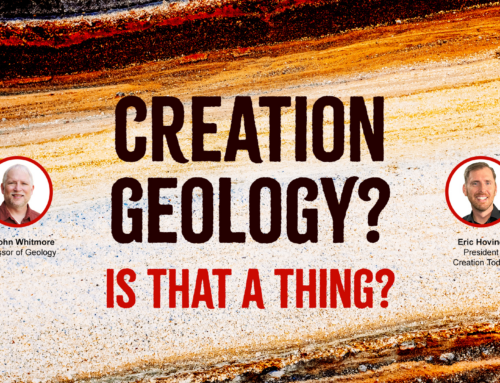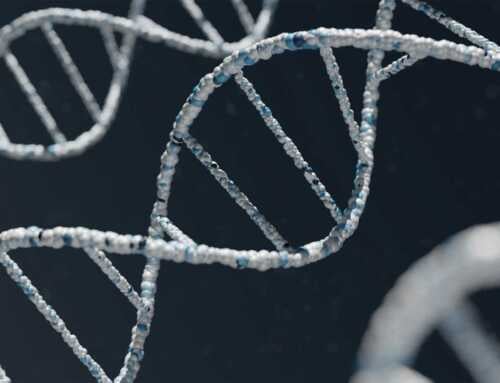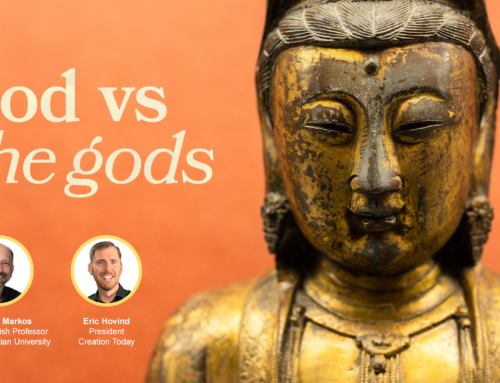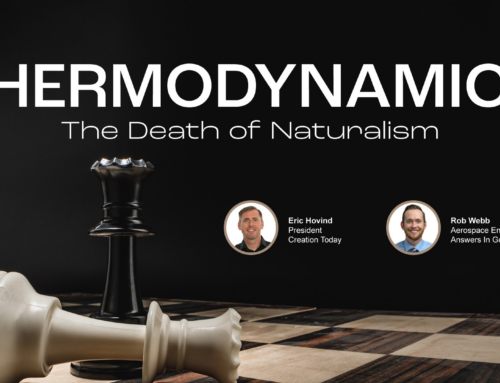Has evolution been “evolving”? Modern science says “YES!” Since the birth of evolution theory in the 1800s, evolutionists have been struggling to find a mechanism that can actually cause evolution. Where has this journey taken them?
Take a look for yourself and you will see that from the beginning, evolution has been evolving, and it has still not improved. Here we will look at five major theories that have been popularized under the label of “evolution,” but which simply don’t satisfy the dictates of either science or reason.
Theories of Evolution
Five major theories have been proposed as the mechanism for evolution; however, they do not stand up to the scrutiny of common sense! Take a minute to examine these for yourself.
- Lamarckism – Lamarckism is the once widely accepted idea that an organism can pass on characteristics that it acquired during its lifetime to its offspring (also known as heritability of acquired characteristics or “soft inheritance”). It is named for the French biologist Jean-Baptiste Lamarck, who incorporated the action of soft inheritance into his evolutionary theories. Lamarckism proposed that the effect of individual efforts during the lifetime of the organisms was the main mechanism driving species to adaptation. As a species would acquire adaptive changes, they would pass them on to offspring causing evolution. Today’s understanding of science has left Lamarckism without a leg to stand on.
- Classical Darwinism (Natural Selection) – The term “Darwinism” (in the classical sense) refers to the concept that natural selection is the sole mechanism of evolution, in contrast to Lamarckism. This theory was popularized by the publication of The Origin of Species, by Charles Darwin in the mid-nineteenth century. Darwin had proposed that species evolved by merely being the fittest–and thus his “survival of the fittest” axiom. Those species most fit for their environment would survive longer and pass along their genes through reproduction. However, in the mid-twentieth century, scientists realized that natural selection alone could not cause evolution. More radical changes needed to be made, and on a much faster timescale.
- Neo-Darwinism (Natural Selection + Mutations) – In modern times, the term “neo-Darwinism” refers to the addition of mutation to the theory of classical Darwinism (natural selection). Following the development in the 1940s of the modern evolutionary synthesis, the term “neo-Darwinian” has been used by some to refer to the modern evolutionary theory that mutations are the driving force of evolution. This idea comes to a halt when science demonstrates that mutations are not frequent or beneficial. That is to say when mutations do happen, they do not produce something new, they just scramble existing information.
- Hopeful Monster – This term is used in evolutionary biology to describe evolution as taking place in a single bound. It says that maybe one day a reptile laid an egg, and a bird hatched out. The problem now is: Who would the new bird mate with? This kind of event would surely be rare, and the chances of that happening twice, at the same time, in the same place, with animals that are the same species, that are of the opposite sex, that are able to reproduce, are …. Well, let’s just say, “It ain’t happening!” The phrase was coined by the German-born geneticist, Richard Goldschmidt, who believed that small, gradual changes could not bridge the gap between microevolution and macroevolution, and that rapid evolution events were necessary to explain the lack of transitional fossils. This argument is an attempt to explain away the lack of transitional fossils in the fossil record.
- Punctuated Equilibrium – In 1972, paleontologists Niles Eldredge and Stephen Jay Gould developed this idea in a paper that built upon Ernst Mayr’s theory of geographic speciation. Eldredge and Gould noticed that evidence of slow gradual changes by means of natural selection championed by Charles Darwin was virtually nonexistent in the fossil record, and that, rather than gradual evolution through minor changes, punctuated equilibrium better explained the fossil record. Punctuated equilibrium stated that major changes did take place, but over relatively short periods of geologic time (10 to 20 thousand years as opposed to millions). This theory is just as ridiculous as the others, as it attempts to argue from the lack of evidence. “Since we don’t have the evidence in the fossil record, this proves evolution happened quickly.”
Back to the Beginning
Scientific evidence has far surpassed the theories of those who believe evolution has taken place and has instead reinforced what the Bible tells us in Genesis 1:25: The animals bring forth after their kind!
As long as man takes God out of the creation equation, then there will be many more theories that try to explain evolutionary phenomena. But as we all know, you cannot build a strong structure on shifting sand. Acknowledging God as Creator is a construct based on solid ground.






